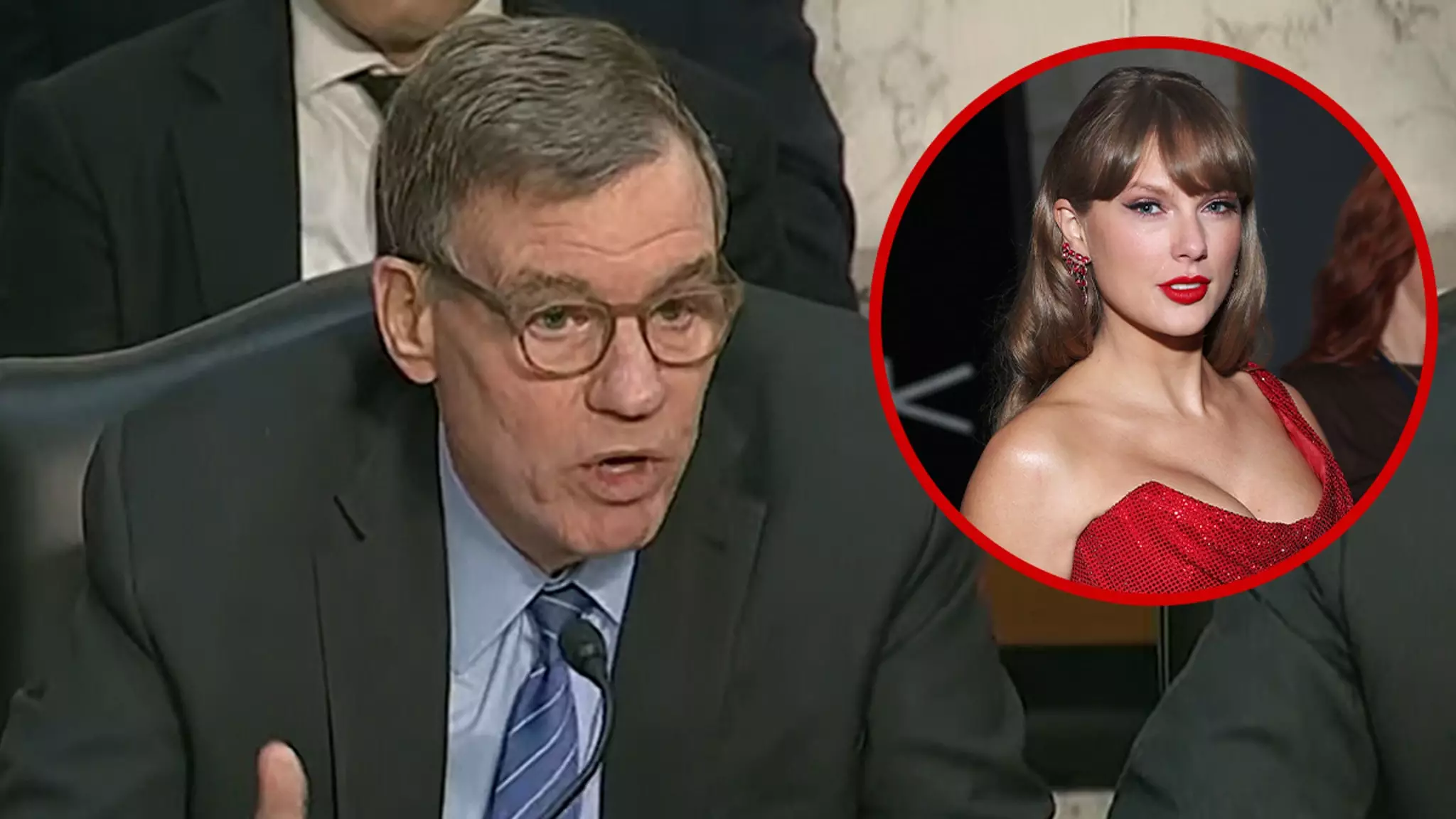The intersection of celebrity culture and national security has rarely been as pronounced as in recent events surrounding pop phenomenon Taylor Swift. In an unexpected twist, she became a focal point during a Senate intelligence hearing, where discussions turned towards the impact of global threats on American partnerships. One can’t help but wonder how a musician, known more for her chart-topping hits than geopolitical concerns, found her name intertwined with discussions of international relations and violent plots against her.
The situation took a bizarre turn during a high-profile annual briefing involving top intelligence officials, where the actions of the United States’ allies were scrutinized. Given recent revelations—from sensitive chat rooms unintentionally exposing classified plans to comments belittling European cooperation—there’s a clear picture of not just a lapse in security protocols, but also an urgent need to align national security discussions with the realities of global threats.
The Taylor Swift Threat: A Case for Enhanced Collaboration
The most gripping point raised during Senator Mark Warner’s questioning was the thwarted terror plots against Taylor Swift’s concerts in Austria last summer. This wasn’t mere hearsay; it was a vivid reminder of how close danger can come to celebrity life and how vital it is for nations to share intelligence. Warner emphasized that effective communication between allies is not just preferable but essential for saving lives. The foiled plans against Swift’s concert served as visceral evidence of the consequences of intelligence-sharing—or the lack thereof—among friendly nations.
Last August, the Austrian police foiled a plot that could have potentially claimed hundreds of lives. Three suspects were apprehended, reportedly planning to detonate explosives at the Ernst Happel Stadium where Swift was scheduled to perform. Swift’s immediate response was to cancel the Austrian leg of her tour and escalate security measures on the remaining European concerts—actions that underscore the gravity of the threats she faced. While many might consider such scenarios as farfetched, it amplifies the need for proactive security measures in the entertainment industry.
Critique of Intelligence Protocols
In light of the Senate hearing, it’s evident that the intelligence community must reassess its protocols and communication channels. The striking incident where a magazine journalist inadvertently gained access to a Signal chat—where sensitive military operations were being discussed—reveals significant flaws within the system. When intelligence officials exhibit such disregard for security protocols, it raises pressing questions about their efficacy.
What does it mean for national security when classified strategies are discussed on a commercial messaging app, leaving the gate open for journalists to bumblingly wander into discussions meant for trained professionals? This lapse showcases not only poor judgment but also a worrying trend of diminishing respect for traditional security practices. In an age where technology continues to outpace governance, the intelligence apparatus must be nimble yet conscientious of the gravity surrounding its mission.
The Role of Celebrity in National Discourse
Taylor Swift’s presence in this conversation indicates that celebrities can often serve as unexpected catalysts for pressing societal issues. When an artist who captures millions of hearts becomes involved in security dilemmas, it inadvertently puts a spotlight on the work of intelligence agencies and their responsibilities. Swift’s situation has ignited broader conversations on how the entertainment industry’s safety is as crucial as global diplomacy.
Her status acts as an uncanny barometer of public safety and international relations, highlighting that if high-stakes figures in our society are targets for hate and violence, there’s a ripple effect that touches every sector from politics to public safety. It begs an unsettling question: How prepared are we to protect not just our entertainers but our collective ethos in an increasingly violent world?
Taylor Swift, a quintessential pop icon, has unwittingly bridged the world of entertainment and national security, forcing us to confront uncomfortable truths about what it means to live in a globalized society—one where even a concert can become a focal point for international threats and political discourse. As the national conversation continues, it’s vital to recognize the intertwining of these spheres and consider what that means for our collective future.

